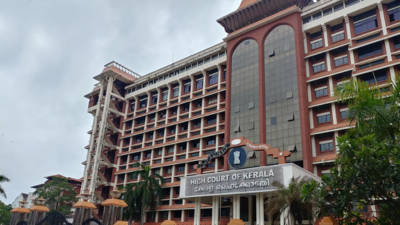A three-judge Bench of the Kerala High Court recently ruled that the regulations set by the All India Council for Technical Education (AICTE) regarding the appointment process for teaching staff in technical institutions take precedence over state rules [Ajal Ramakrishnan & Ors v Athira & Ors].
The Bench, comprising Acting Chief Justice A Muhamed Mustaq and Justices Shoba Annamma Eapen and S Manu, emphasized that education, including technical education, falls under the concurrent list of legislative subjects in the Indian Constitution. This means both the Central government and state governments have the authority to make laws on the subject, but in case of a conflict, Central law prevails under Article 246.
In light of this, the Court held that AICTE’s regulations for recruiting staff to technical institutions override any conflicting state provisions, including those under the Kerala Public Service Act. “We are of the view that the regulations framed under the Central enactment would prevail over the Rules framed under the Kerala Public Service Act,” the Court stated.
The Court further affirmed that the AICTE has the authority to prescribe staff recruitment methods, even if this power is not expressly mentioned in the All India Council for Technical Education Act, 1987 (AICTE Act). It reasoned that recruitment methods are crucial to maintaining the quality of education in technical institutions. For instance, direct recruitment is more likely to attract qualified talent, which would impact educational standards.
“If the method of appointment affects the quality of education in technical institutions, the Court cannot challenge AICTE’s authority to prescribe such methods,” the Court explained. While the AICTE Act does not explicitly grant the Council authority to set appointment methods, the Court ruled that such prescriptions are integral to the quality of education and therefore within AICTE’s purview.
This ruling was delivered following a reference from a Division Bench, which questioned the correctness of two earlier judgments: Suresh v State of Kerala (2021 (1) KLT 566) and Haridas v Athira (2021 (1) KLT 546). In both cases, it was held that AICTE had the authority to prescribe not only the qualifications but also the appointment methods for teaching staff. The Division Bench, however, doubted whether appointment methods were linked to education standards, which are within AICTE’s jurisdiction, and referred the matter to a larger Bench.
The key issue before the Court was whether the Kerala Public Service Act, 1968, and the Kerala Technical Education Service (Amendment) Rules, 2010, or AICTE’s 2019 notification, which mandated direct recruitment for lecturers in technical institutions, should prevail. The 2010 state rules allowed for a 13:7 ratio between direct recruitment and appointments by transfer, while AICTE’s 2019 notification called for exclusive direct recruitment.
In its ruling on September 12, the three-judge Bench concluded that AICTE’s regulations, being Central law, override the state’s rules in matters related to technical education. The Bench upheld the legal principles established in the Suresh and Haridas cases.
Advocates P Nandakumar and Amrutha Sanjeev represented certain petitioners, while Advocates Raghul Sudheesh, KJ Glaxon, J Lakshmi, and Amal Jees Alex appeared for the respondents. Advocate Sajith Kumar V appeared for the AICTE.

















